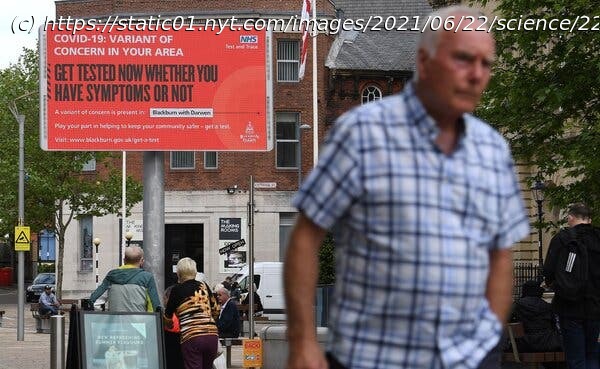The variant is gaining traction worldwide. But vaccines are driving down coronavirus case numbers in the U.S., and it’s unclear whether Delta will reverse that trend.
The super-contagious Delta variant of the coronavirus is now responsible for about one in every five Covid-19 cases in the United States, and its prevalence has doubled in the last two weeks, heath officials said on Tuesday. First identified in India, Delta is one of several “ variants of concern,” as designated by the Centers for Disease Control and Prevention and the World Health Organization. It has spread rapidly through India and Britain. Its appearance in the United States is not surprising. And with vaccinations ticking up and Covid-19 case numbers falling, it’s unclear how much of a problem Delta will cause here. Still, its swift rise has prompted concerns that it might jeopardize the nation’s progress in beating back the pandemic. “The Delta variant is currently the greatest threat in the U.S. to our attempt to eliminate Covid-19,” Dr. Anthony S. Fauci, the nation’s leading infectious disease expert, said at the briefing. The good news, he said, is that the vaccines authorized in the United States work against the variant. “We have the tools,” he said. “So let’s use them, and crush the outbreak.” Here are answers to some common questions about the Delta variant. Delta, formerly known as B.1.617.2, is believed to be the most transmissible variant yet, spreading more easily than both the original strain of the virus and the Alpha variant first identified in Britain. Public health officials there have said that Delta could be 50 percent more contagious than Alpha, though precise estimates of its infectiousness vary. Other evidence suggests that the variant may be able to partially evade the antibodies made by the body after a coronavirus infection or vaccination. And the variant may also render certain monoclonal antibody treatments less effective, the C.






